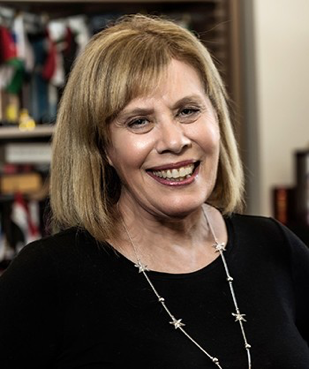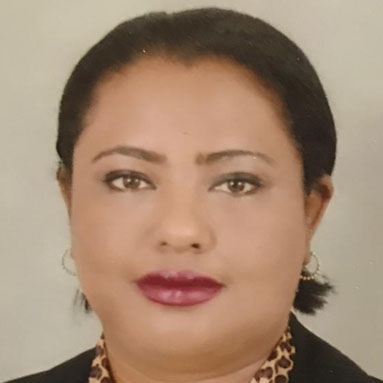The global withdrawal of the United States that began under President Obama has been dramatically accelerated by the Trump Administration, leaving a power vacuum that other players are attempting to fill. In particular, the U.S. seems bent on abdicating its role as security provider and power balancer in the MENA region, including the Gulf. This has allowed regional players and outside actors to forge a larger role in the region as power begins to shift. The ongoing redistribution of power is redounding to the benefit of a newly resurgent Russia which, despite its relative weakness, may be set to overtake the United States as the dominant power in the Middle East region.Putin has been quick to capitalize on US efforts to scale back its commitments and guarantees, and to present Russia as a reliable ally, unlike the inconsistent, erratic and unpredictable policies of the current American president. Trump’s withdrawal from the Iran nuclear deal with no backup plan in place, his flip-flops on the rift between Qatar and other members of the GCC, his abrupt withdrawal of troops in Syria and the abandonment of the Kurdish allies, and his pledge to “take the oil,” cannot leave Gulf leaders feeling confident in the Administration’s competency or good will. Trump’s rhetoric on withdrawing US naval forces that protect freedom of navigation in the Gulf have led Iran to feel free to threaten oil tankers in the Gulf, attack major Saudi oil installations by drone strikes, and accelerate its ability to stockpile nuclear fuel.Russia (along with Iran) has been the main beneficiary of the perception of US withdrawal. Russia has already sent combat troops to Syria to fill the vacuum left by the U.S. withdrawal, offered to mediate several regional disputes, including the crisis in Yemen and the GCC rift, and increased military and economic aid and cooperation with Saudi Arabia. It has been careful to stick by its Syrian, Turkish and Iranian allies without alienating its nascent relations with the Gulf states. Russian and GCC interests are moving closer together on the issue of oil production as U.S. shale oil production increases and is seen as a competitor to both Russia and OPEC. These shifting power dynamics make this an opportune time to look more closely at the capacity, objectives and limitations of Russia’s role in the Gulf region.While Russia’s role in the Gulf has become enhanced, the GCC-Central Asian relationship remains anemic. However, there are signs of potential avenues of cooperation and collaboration, especially in the energy sector. Turkmenistan has been seeking investment from the Gulf for its TAPI natural gas pipeline, Kazakhstan has been successful in its quest for UAE and Kuwaiti investment in its flagship nuclear energy project, and Uzbekistan presents new opportunities as it moves to open up its economy to foreign investors.
3 DAYS / 12 Workshops
MORE THAN 300 ACADEMIC PAPERS
Description and Rationale
Objectives and Scope
The objective of this workshop is to explore these issues in light of Russia’s growing role and power projection in the region. Since Russia needs to tread more carefully in the Gulf due to its relationship with its ally Iran, there might be stricter limitations to Russia’s ability to engage in the region. We would hope to analyze Russian intentions and limitations in the Gulf. On the other hand, we would hope to consider GCC countries’ reaction to Russian overtures. To date, Russia’s support for President Assad in Syria and its enabling of Iranian expansion have not disrupted its relations with the GCC countries. The tension inherent in the relationship should be explored. Finally, we hope to look more deeply at GCC-Central Asian and Azerbaijani relations, and whether economic and energy cooperation is feasible. There is great potential for cooperation but several factors are holding the back any fruitful collaboration.
The papers we would want to attract for this workshop would center around the following questions:
What are the consequences of American disengagement from the Gulf? How will Russia attempt to benefit? Are Russian objectives antithetical to regional stability in the Gulf? Is Russia intent on retaining the status quo in the region or upending it? Will Gulf energy resources be less secure under a Russian-dominated system? Will Russia’s allies, Iran and Turkey, feel less constrained and more aggressive in the Gulf? What are GCC countries doing to compensate for this turn of events, i.e., establishing new relationships with one another, building their own capabilities, expanding their ties with Russia and China?
Despite the warm reception of Putin’s recent visit to the Gulf, how can the Russian concept of collective security contribute to ensure the stability and future perspective of the GCC? How can Russian diplomacy help the GCC to overcome their divisions? What is the Russian perspective toward ports competition in the Gulf region between India and China? And how can they balance the leverage of the western powers in the region? How can Russia balance the regional rivalry between Iran and Saudi Arabia, particularly in light of the fact that they are planning to hold joint maritime exercises with Iran in the Indian Ocean in 2020?
What factors haven impeded GCC-Central Asian cooperation? What opportunities exist for foreign direct investment in Central Asia and Azerbaijan? Are these opportunities complicated by endemic corruption and low “ease of doing business” scores? How will China’s Belt and Road Initiative affect these relations?
Contribution to the Gulf Studies
A workshop on Russian—CIS-- GCC interactions will add to the emerging body of knowledge of this developing relationship. Given the shifting power dynamics in the region, this is the opportune time to explore the issues detailed above. This workshop will represent an early exploration by scholars of the future of GCC-CIS affairs, upon which other experts can build. It will expand Gulf Studies through a serious investigation of a topic that has been little studied thus far and has fluctuated on a daily basis. The topic is important for scholars, policy-makers and practitioners alike. We imagine it will engender lively discussion going forward.
Anticipated Participants
- The Gulf Monarchies: Domestic, regional and international security dynamics
- Sources and background of Russia’s GCC Policy
- Russia’s energy diplomacy in the Gulf
- Arms exports to the Gulf States
- GCC-Russia trade, economic relations and ports agreements
- GCC-Central Asia relations (this can be broken down by country, especially Uzbekistan, Turkmenistan, Kyrgyzstan
- The View from the Gulf States
- Russia, China, the US and the GCC quadrangular relations
These are only suggestions and we are open to other paper topics

